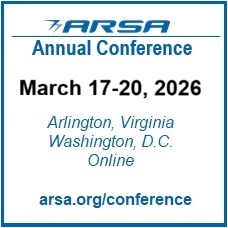Request for Clarification of FAA D&A Testing Rules
On April 1, 2010, ARSA again requested clarification of the Federal Aviation Administration (FAA) anti-drug and alcohol rules. This time, ARSA seeks to resolve uncertainty surrounding an employee’s permanent disqualification from service and the implications of a “shy bladder” refusal to test for individuals in a follow-up testing program.
In plain terms, an employee with two verified positive drug tests is permanently barred from performing safety-sensitive duties for any employer (14 CFR § 120.111(e)(1)); essentially, two strikes and you’re out. Before allowing a covered employee to return to safety-sensitive work after testing positive for drugs (first strike), an employer must comply with follow-up testing requirements (14 CFR § 120.109). If, during the follow-up tests, the employee cannot provide an adequate sample for testing—referred to as a “shy bladder”—it is considered a refusal to test if the circumstance is not the result of a medical condition (49 CFR §§ 40.193(d)(2) and 40.191(a)(5)).
Although the terms “refusal to submit to drug test” and “verified positive drug test result” are separately defined (14 CFR § 120.7), questions have arisen when the “refusal” occurs during the course of follow-up testing; that a refusal in this context is a second strike.
Compounding the issue, questions crop up as to the handling of the individual if such a refusal is not a second strike. If the person holds an FAA certificate under parts 61, 63 or 65, the drug and alcohol rules provide specific consequences for a refusal to test (14 CFR §§ 120.11, 120.13 and 120.15). However, for safety-sensitive employees not certificated by the FAA, an employer is instructed to direct the individual to the follow-up testing program; seemingly, such persons could repeatedly “refuse to test” and simply re-start the follow-up program after each occurrence.








